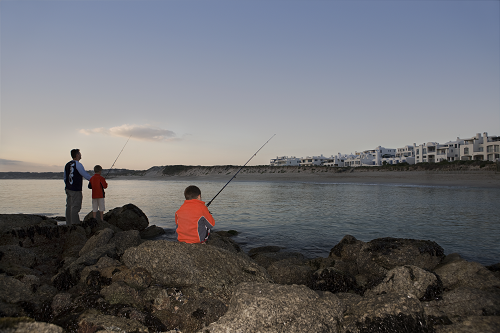

It’s no surprise that there are increasing calls for digital detox. After all, with more people working from home and meeting via Zoom and other platforms – and with the rise of platforms like TikTok and Facebook Reels to create a rabbit hole users can explore after hours, screen time is at an all-time high.
The upcoming National Day of Unplugging can be seen as a call-to-arms for those hosting events such as mind sports. The event, taking place from sundown Friday, March 4 to sundown Saturday, March 5, is a prime opportunity to encourage individuals to get off cell phones and out from behind screens, and to immerse themselves in nature, as well as in face-to-face events and communication.
Back in 2018, the Renaissance Pittsburgh Hotel offered a Digital Detox Weekend package, complete with a hotel room that eschewed docking stations and included board games and literary classics – as well as discount coupons to enjoy some of the city’s outdoor attractions, such as kayaking and sightseeing.
That campaign, which required visitors to surrender their mobile phones, iPads and more at the front desk – was certainly aimed at weekend tourists, but it could also be seen as a call-to-arms for those hosting outside events (fishing, 5Ks, etc.) events such as mind sports. Outdoor sports, like 5Ks, mountain biking and fishing (get offline and cast a line, for example), are also a great option for tie-ins.
Across the U.S., in-person tournaments are once more being held for aficionados of games such as chess, bridge, crossword puzzles and sudoku. And those tournaments attract not only the individuals participating in the competitions, but spouses and families as well. If event organizers join with sports commissions at those destinations, an unlimited number of tie-ins is possible. Encouraging visitors to try those sports – and sightseeing – could make for some excellent marketing opportunities, as well as create additional media exposure for the events themselves.
For those who think it’s not an option, there are event owners who will beg to differ – and they’re putting on events in some prominent destinations.
Laurent Clement, the Communications Team Leader for the World Cube Association, put on her national event in Rocky Top Sports World, in January 2020. (WCA governs competitions for mechanical puzzles that are operated by twisting groups of pieces, known colloquially as “twisty puzzles.” The most famous of these puzzles is, of course, the Rubik's Cube, invented by Professor Erno Rubik of Hungary. A selection of these puzzles is chosen; these puzzles are offered as official events in competitions of the WCA. In addition to traditional puzzle solving, competitors can opt to participate in events involving solving puzzles blindfolded or using only their feet).
The US Chess Federation, meanwhile, has an enormous youth following (as well as adults, thanks to shows like The Queen’s Gambit) and that lends itself to a need for big competition spaces. In fact, the organization has a robust calendar of in-person events in major cities in 2022.
And that’s not all. SDM has covered the International Mind Sports Association, which governs competitions in any number of events – and has covered events like the American Crossword Puzzle Tournament, held in New England, the next iteration of which is coming up in April.
There are plenty of other in-person sports team (obviously) that require athletes to work without their phones (any youth team sport, really) – but getting parents to unplug and not share to social media might be a tougher sell.
The National Day of Unplugging, put on by the nonprofit Unplug Collaborative, has announced designated “Unplugged Villages” in Austin, Bethesda, Denver, High Point, Los Angeles, San Diego, Staten Island, Philadelphia and Washington, D.C. Community members have pledged to participate in fun and meaningful off-screen experiences in their neighborhoods and at public parks and local businesses — to celebrate the 24-hour respite-from-technology event.

